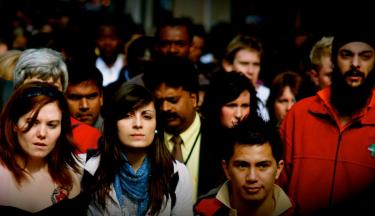|
|
The Integration Futures Working Group was established in 2016 to develop a fresh agenda for integration policy in Europe. It brings together senior integration policymakers and experts, civil-society officials, and private-sector leaders to create a platform for long-term strategic and creative thinking.
Through regular meetings and a forward-thinking program of original research, the working group aims to provide a safe space for off-the-record discussions on the most sensitive topics in integration policy. It also encourages integration policymakers to step outside of their everyday responsibilities to peer around the corner and move beyond crisis mode.
The Integration Futures Working Group has provided a critical platform for maintaining exchange and reflective thinking during the most testing moments for immigration and integration policy, including the 2015-16 spike in flows to Europe, the COVID-19 pandemic, the Ukrainian displacement crisis, and the recent rise in asylum arrivals.
In Spring 2020, MPI Europe launched a special program of work looking at how to minimize the corrosive effects of the COVID-19 pandemic on integration dynamics, programs, and governance. Key areas of focus include community-building and solidarity at a time of physical distance, innovations to mitigate the economic fallout of the pandemic, and connecting public health and integration (including by addressing persistent health inequalities).
From 2016-2020, areas of discussion included values (how countries can define, adjudicate, and message values in a context of rising cultural and religious diversity); education (how schools can equip future citizens to live in diverse societies); labor market disruption (how integration policymakers can help newcomers thrive in fast-changing job markets); community resilience (how to build a “whole-of-society” approach to integration and empower communities to design and deliver integration services); and future welfare systems (how to ensure integration policy supports the long-term sustainability of social spending amid population aging).















